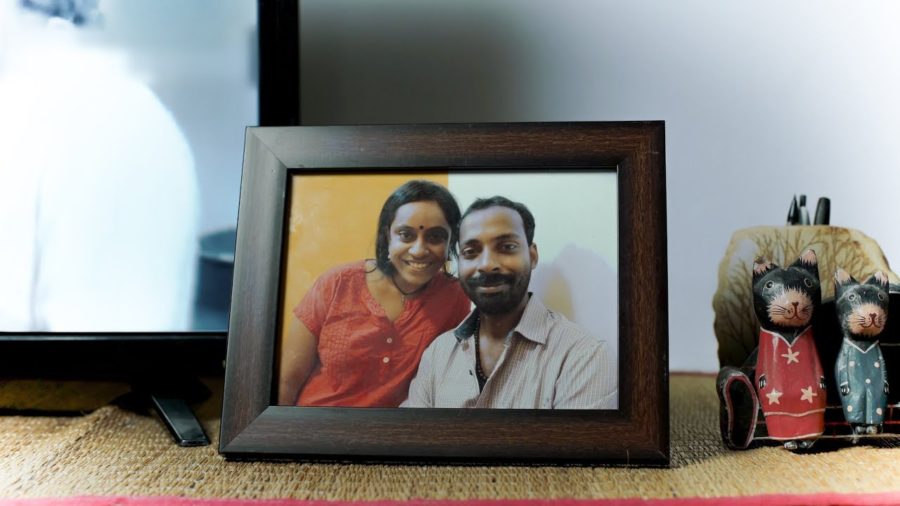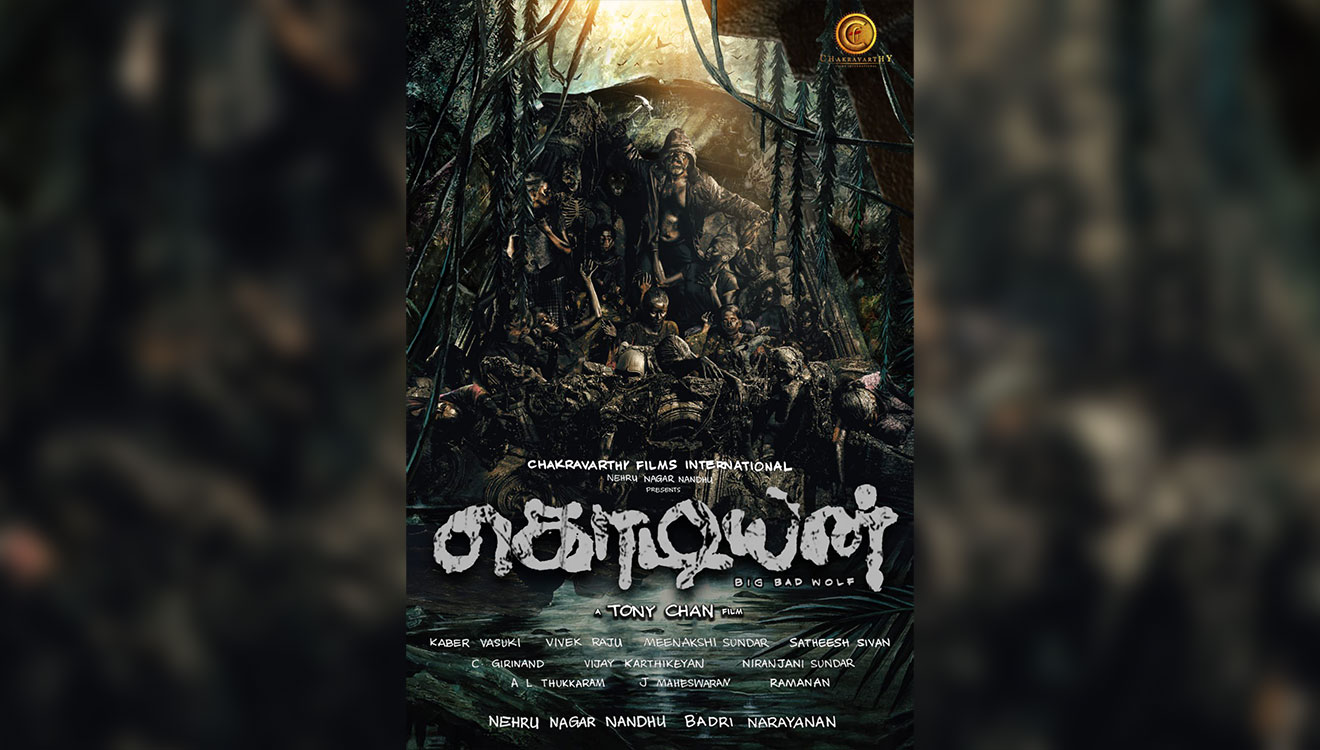Two short films in the #VoteOutHate series, produced by Pa Ranjith and Neelam Cultural Centre, have released during the Lok Sabha elections. The films – Lovers in the Afternoon and Share Auto – are about the politics of hate and discrimination that we encounter in everyday lives. While they are a call to vote out hate, both films are relevant otherwise too, and show that a simple effort can go a long way in bringing about change.
Lovers in the Afternoon, written and directed by Rajesh Rajamani, is two-minute film featuring Radhika Prasiddha and Regin Rose. The film opens with an argument between a couple, even as the song ‘Kalyanam Ha Ha Kalyanam’ from Penn plays on TV. The song sets the tone for the rest of the film. Radhika leaves the room, and the next scene sees both of them in contemplation. Meanwhile, Regin turns off the television and decides to cook a meal for them. He goes to a beef stall, and the scenes that follow is a series of close-ups – from when the beef is chopped and wrapped by the butcher, till it is washed, cooked and served with sambar and rice. As easily as perhaps the fight began, the couple makes up over food.
The short film conveys things in a fuss-free manner, but makes its point too. A couple having a normal fight, the man making up by cooking, and two people eating beef with pleasure – these are ordinary things that we need to see more of. Speaking to Silverscreen, Rajesh says, “I was trying to see how I could restore beef to a place where it truly belongs. A pleasurable food item that people consume while bonding with each other. And thereby, relieve beef of the unnecessary baggage it has always been burdened with. More so, in the recent past.”
He says sound designer Raj Kumar P was asked to deliberately muffle the argument to make the film more relatable, “That makes it universal, and everyone could connect to the moment.”
Both Radhika and Regin fit the roles well. “I’m working with Radhika on a short film and she is a terrific performer. I watched some short films Regin has acted in; he’s effortless. Both of them are natural performers. I wanted faces that look very Tamil, and they fit that requirement too.”
The cinematography for the film is by Dinesh K Babu, and editing by Nagooran. Rajesh, a strong and vocal critic of caste, who also runs the Facebook page Inedible India, was one of the people invited by Neelam’s online team to discuss the kind of content they could produce. “We all agreed to start with making content that would reflect Neelam’s ideological position on the current Lok Sabha elections. I was given complete freedom to write and direct whatever I felt suitable,” he says.
*****
Share Auto, which released a day after Lovers in the Afternoon, is written and directed by Jeny Dolly, Ranjith’s associate. The film is about discrimination that takes place in an urban space, where a person’s caste is determined by one’s job, the clothes one wears, and skin colour.
Sheeba Rampal plays a sanitary worker who travels in a share auto. Jaya Swaminathan essays the part of an upper caste woman who boards the auto, all the while squirming at the company. She tries her best to sit away from Sheeba in the little space available. The auto driver asks her to sit comfortably, warning her she might get hurt, but she does not listen, and she hurts herself when the auto hits a speed breaker. Finally, she involuntarily leans into her seat, and her shoulder touches Sheeba’s.
No one else in the auto notices what’s happening, but the two women know. Sheeba doesn’t speak a word, and her smile in the end – as she plugs ear phones and the song ‘Bongu’ from Kadhalum Kadanthu Pogum plays – conveys that the situation takes care of itself. We see Jaya rub her head in pain. The message is that it is injurious to discriminate.
The film’s director Jeny Dolly told Silverscreen that the short film was an experiment they wanted to release during the Lok Sabha elections. She has previously worked with Ranjith in Kaala, Kabali and is currently working on the Hindi film on Birsa Munda.
About Share Auto, she says, “I wanted to make something where the onus to rectify the situation does not lie on the oppressed. The sanitary worker does not say a single word, because she does not have to speak. I wrote the character as a sanitary worker specifically because they are invisible, because the reflect something so ugly about society. And, I wanted the narration to be such that we don’t place the liability on them to speak.”
Recommended
The responses to the film were varied. The director thinks interpretations are allowed; however, she thinks she has made her stand clear in the film. She stands by the last two lines that appear in the end. “Discrimination is injurious to health. Practice discrimination at your own risk.”
As for the actors, Sheeba Rampal is an assistant director in Tamil cinema, while Jaya Swaminathan is a theatre artiste. Jeny says the two films are sort of a revamp for Neelam TV, which is becoming popular as a YouTube channel too. Jeny believes this is because more and more people want to see what they go through in real life on screen. “We have the energy, courage and politics to say things that so many people are not being allowed to at this point,” she explains.
*****
Watch Lovers in the Afternoon:
Here’s the film Share Auto:
Image Courtesy: Youtube



